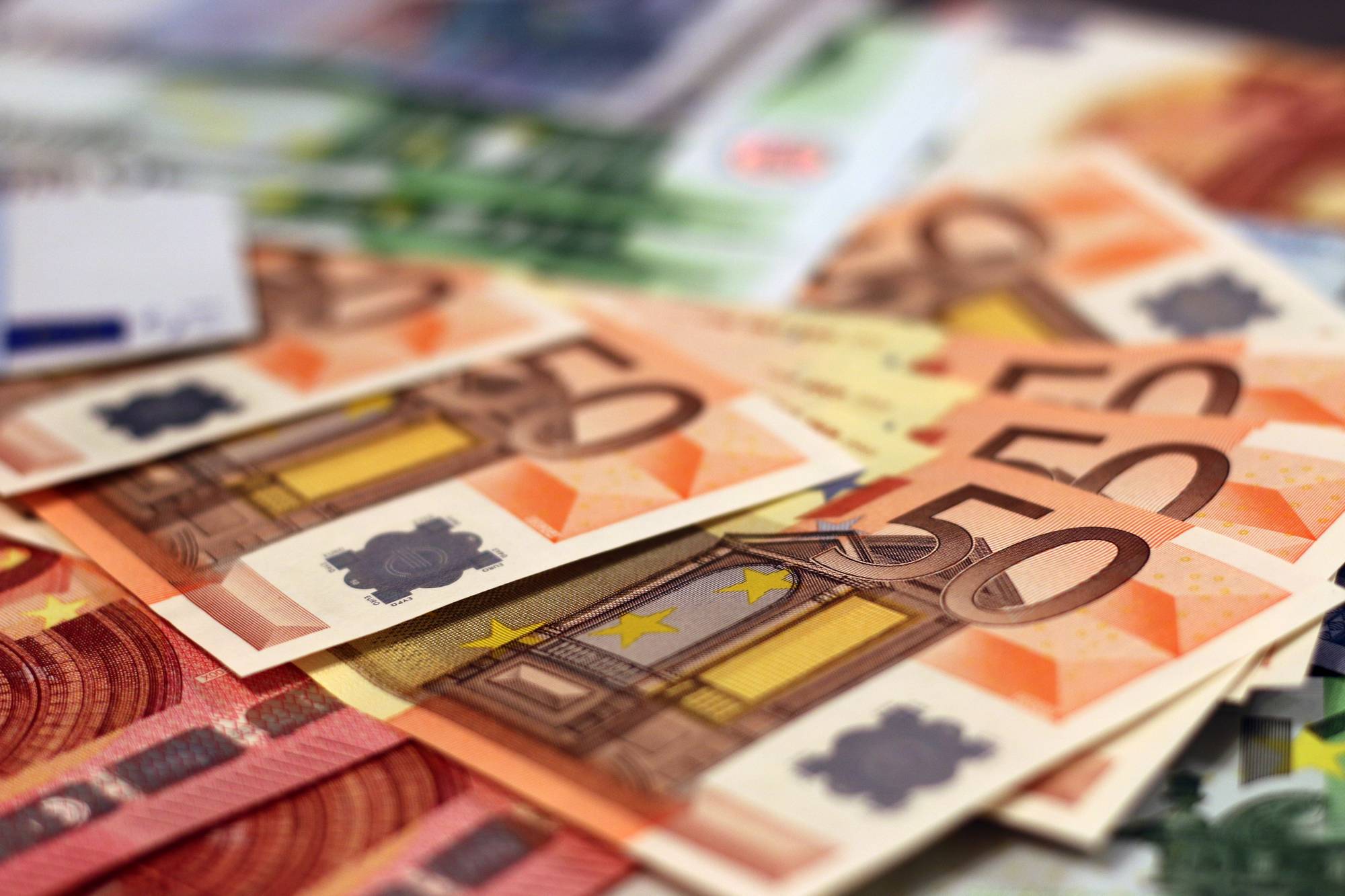
The cost of salaries in France and competitiveness in Europe
Social security contributions, taxes, CSG and CRDS… The “net amount to be paid” appearing on an employee’s payslip can hide certain additional charges for the employer.
However, the cost of salaries in France is often exaggerated in the minds of entrepreneurs and project leaders. As a result, some may hesitate when it comes to setting up a new business. However, tax incentives exist for the lowest salaries and make the hiring of an additional workforce very attractive.
What is the real cost of an employee in the private sector in France, and how can you anticipate the budget needed for recruitment? Below, a complete overview to understand everything with Dunkerque Promotion, economic development agency in the Maritime Flanders and Hauts-de-France area.
What is the cost of labour in France and in Europe?
In 2020, France is the fifth European country with the highest hourly wage cost: €38.1 per hour in the non-agricultural market sector (NAICS), excluding household services. It is therefore not the country in which the employment of employees is the most expensive.
For example, France is less expensive than Denmark (€46.9) or Sweden (€39.8). Hourly labour costs are not so far behind those in Germany: in 2020, they stood at €36.7.
In the industrial sector (excluding public works and construction), the overall cost of wages in France is even lower than in Germany: it reaches an average of €40.2, compared with €41.8 in Germany.
What is the cost of labour by sector in France?
In 2020 and according to INSEE, the cost of French employees will amount to :
- € 34.6 per hour in the construction sector, with a tax rate of 41.2%;
- € 37.7 per hour in the service sector, with a rate of 44.1%;
- € 40.2 per hour in the industrial sector, with a rate of 46.2%.
One reason for these differences may be the difference in average earnings, as higher earnings are less likely to be eligible for contribution relief schemes.
What is the level of wage costs in France?
In 2020, social security contributions and other compulsory levies payable by the employer represented a 44% surcharge on the gross wage. A gross salary of €100 thus corresponds to a real cost of €144 for the employer. It is of course important to take this factor into account when hiring an employee, in order to anticipate the real cost to the company.
However, this proportion varies between companies: sectors employing a large number of employees without requiring many qualifications benefit more from the relief measures.
The rise in labour costs in France was relatively moderate between 2013 and 2020 (9.2%, compared with 16.7% in Germany and 14.4% for the EU average). This is explained by the impact of several successive measures, such as the tax credit for competitiveness and employment (TCCE) between 2013 and 2018, and then the various measures to support employment during the health crisis.
For several years, France has therefore tended to become more competitive and to attract an increasing number of entrepreneurs.
Net, gross, loaded salary… What are we talking about?
- The gross wage is the remuneration paid to the employee before the application of payroll taxes. It always appears on the employment contract.
- The net salary, on the other hand, is the amount actually received by the employee after the application of various employee contributions (old age insurance, supplementary pension, CSG/CRDS, etc.)
- The loaded wage is the total amount actually paid by the company to employ an employee. It adds up the gross wage and all the employer’s contributions.
What is the composition of wage costs in France?
Salary costs
The employer collects the various contributions and pays them to the social bodies: Urssaf, Pôle emploi, complementary pension funds, etc. This includes:
- Social security contributions paid to Urssaf (sickness, maternity, death, disability and old age insurance under the general scheme).
- Social contributions paid to Urssaf: the CSG (general social contribution), with a tax-deductible portion, and the CRDS (contribution to the repayment of the social debt), which is not deductible.
- Unemployment contributions paid to Urssaf for all employees under 65, on behalf of UNEDIC.
- Supplementary pension contributions paid to pension and provident institutions: Agirc-Arrco, general equilibrium contribution (CEG), and technical equilibrium contribution (CET) for salaries above the annual Social Security ceiling (PASS).
Fillon discount
The general reduction in employers’ contributions, or “Fillon reduction”, reduces the amount of social security contributions for salaries below 1.6 times the gross SMIC, i.e. a gross salary of €2,564.99 per month in 2022. The aim of this scheme is to encourage employers to recruit low-skilled people, with a significant reduction in employers’ contributions.
The exact amount of the Fillon reduction is subject to a complex calculation and the application of a coefficient, which differs depending on whether the company has more or less than 50 employees. It can amount to the totality of the Urssaf contributions, i.e. more than 28% of a gross salary at the SMIC.
For example, the employment of an employee with a gross monthly salary of €1,592.54 (i.e. a gross annual salary of €19,110.48) gives rise to a total reduction in social security contributions of €5,065.93.
This benefit applies to both :
- Social security contributions for sickness, maternity, disability, death and old age insurance;
- Contributions to the compulsory supplementary pension scheme (Agirc, Arrco…);
- To the FNAL (Fonds national d’aide au logement) contribution;
- To the contribution solidarité autonomie (CSA);
- To CAF contributions;
- Employers’ contributions to unemployment insurance, industrial accidents and occupational diseases.
Other expenses
In addition to social security contributions, other elements can be integrated to assess even more accurately the burden on a company’s payroll. These include, among others:
- Occupational medicine (approximately €70 to €80 per year per employee);
- Compulsory company mutual insurance, financed jointly by the employer and the employee;
- Meal vouchers, also jointly financed (50/50 or 60/40);
- Reimbursable business expenses of employees (especially travel expenses);
- The costs of administrative management of the employee (edition of the pay slip)…
Is the cost of wages in France competitive?
The cost of wages in France, at €38.1 per hour, certainly appears higher than the average for the EU-27 (€28.2). However, it should be remembered that competitiveness is measured by other criteria. Thus, for example:
- The hourly productivity of French employees, estimated at €70, is the fifth highest in the world, behind Ireland (€107) and the United States (€71), but ahead of Germany (€66), the United Kingdom (€59) and Italy (€56).
- The cost of commercial property is particularly attractive in France. The country will rank third in Europe in terms of investment in office buildings in 2019, with 23 billion euros invested. Thanks to the dynamism and number of new projects, the increase in rents in a district like La Défense has been moderate: +15% between 2015 and 2018, compared to an increase of 45% in Berlin over the same period.
- The cost of energy also has an important impact on many companies. Thanks in part to its nuclear fleet, France offers an average cost of electricity of only €0.18 per kWh including tax. This compares with €0.30 per kWh in Germany, Belgium or Denmark, for example, and over €0.20 in the UK.
Other parameters must be taken into account in the cost of wages in France. For example, the number of work-related accidents and illnesses can have an impact on the cost rate… Many other factors must be taken into account.
***
Would you like to have a better overview of your social and fiscal charges before setting up a business in France? Dunkerque Promotion is a leading economic development agency in the Hauts-de-France and Maritime Flanders region.
The agency will help you study your development project, the establishment of a company or an investment near Dunkirk. The agents’ speciality is to put you in touch with partner firms and organisations in matters of taxation, social security contributions and labour law.
The three key points to remember:
- The cost of employees in France is in the high average of the European Union.
- To calculate the cost of an employee, it is necessary to take into account all the employer’s charges and various expenses (social benefits, administrative management, etc.).
- The country compensates for the relatively high cost of labour with high productivity and an excellent economic environment for developing a business.
Article written in collaboration with KPMG and KPMG Avocats.
-
Chapters
- What is the cost of labour in France and in Europe?
- What is the cost of labour by sector in France?
- What is the level of wage costs in France?
- Net, gross, loaded salary… What are we talking about?
- What is the composition of wage costs in France?
- Fillon discount
- Is the cost of wages in France competitive?
- The three key points to remember:






